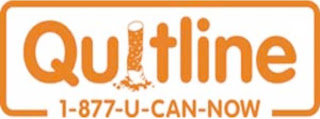Many people understand that driving distractions are the number one cause for teen auto accidents. No matter how many time we talk to our teens about driving and texting, we still hear about horrific accidents - and some that are ending lives.
Oprah promotes The No Phone Zone and received many signatures from celebrities and all walks of life to take the pledge not to text and drive, including talking and driving. The cell phones should simply be turned off or placed in the glove box where they won't distract the driver - of any age!
However teens being teens, never believe that these accidents can happen to them. The joy of believing that bad things just happen to other people come with being youthful and immature (respectfully).
Some facts about distracted driving and teens:
• Currently 30 states have anti-texting laws.
• The #1 cause of teen deaths is car accidents.
• Over 5000 teens ages 16-20 die due to fatal injuries caused by car accidents each year.
• 16-19 year olds have the highest risk of being in an accident.
• Approximately 400,000 drivers ages 16-20 will be seriously injured in accidents, annually.
• 16-19 year olds are 4 times more likely than other drivers to be involved in a car crash.
• Teens are 10% of the US population, but account for 14% of all fatal car accidents.
• 60% of 16-18 year old drivers will be in a police-reported collision.
• Teen drivers ages 16-19 are 4 times more likely than older drivers to crash.
• There is an 89.2% chance of having a crash within the first 3 years of driving.
• There is a 52.5% chance of your teen having 2 crashes within the first 3 years of driving.
• Over 50% of all teen deaths from car accidents occur between 3pm and midnight, and 54% occur on weekends.
New to the market is TextZapper.
TextZapper provides a quick and easy solution to stop texting and emailing while driving, now protecting us all in a way never before possible.
Unfortunately TextZapper is currently only available on SmartPhones and hopefully will be expanded to others or possibly others have a similar product (please share in comments below). There is a small monthly fee of $4.99 for TextZapper. One benefit is parents can have peace of mind that the distraction of texting while driving is eliminated.
Learn more at www.zapmytext.com.
Whether you employ TextZapper or another type of service, never stop talking to your teens about the dangers of texting and driving. It can be deadly.
Don't forget about distracted bicycling! Too many teens are texting and pedaling, which is extremely dangerous too. Read more.
Although Florida has a texting and driving bill that passed the Senate Committee, currently there is not legislation in place. For the Florida law update, click here.
Be an educated parent, you will have safer teens.
Read more.
Oprah promotes The No Phone Zone and received many signatures from celebrities and all walks of life to take the pledge not to text and drive, including talking and driving. The cell phones should simply be turned off or placed in the glove box where they won't distract the driver - of any age!
However teens being teens, never believe that these accidents can happen to them. The joy of believing that bad things just happen to other people come with being youthful and immature (respectfully).
Some facts about distracted driving and teens:
• Currently 30 states have anti-texting laws.
• The #1 cause of teen deaths is car accidents.
• Over 5000 teens ages 16-20 die due to fatal injuries caused by car accidents each year.
• 16-19 year olds have the highest risk of being in an accident.
• Approximately 400,000 drivers ages 16-20 will be seriously injured in accidents, annually.
• 16-19 year olds are 4 times more likely than other drivers to be involved in a car crash.
• Teens are 10% of the US population, but account for 14% of all fatal car accidents.
• 60% of 16-18 year old drivers will be in a police-reported collision.
• Teen drivers ages 16-19 are 4 times more likely than older drivers to crash.
• There is an 89.2% chance of having a crash within the first 3 years of driving.
• There is a 52.5% chance of your teen having 2 crashes within the first 3 years of driving.
• Over 50% of all teen deaths from car accidents occur between 3pm and midnight, and 54% occur on weekends.
New to the market is TextZapper.
TextZapper provides a quick and easy solution to stop texting and emailing while driving, now protecting us all in a way never before possible.
Unfortunately TextZapper is currently only available on SmartPhones and hopefully will be expanded to others or possibly others have a similar product (please share in comments below). There is a small monthly fee of $4.99 for TextZapper. One benefit is parents can have peace of mind that the distraction of texting while driving is eliminated.
Learn more at www.zapmytext.com.
Whether you employ TextZapper or another type of service, never stop talking to your teens about the dangers of texting and driving. It can be deadly.
Don't forget about distracted bicycling! Too many teens are texting and pedaling, which is extremely dangerous too. Read more.
Although Florida has a texting and driving bill that passed the Senate Committee, currently there is not legislation in place. For the Florida law update, click here.
Be an educated parent, you will have safer teens.
Read more.








